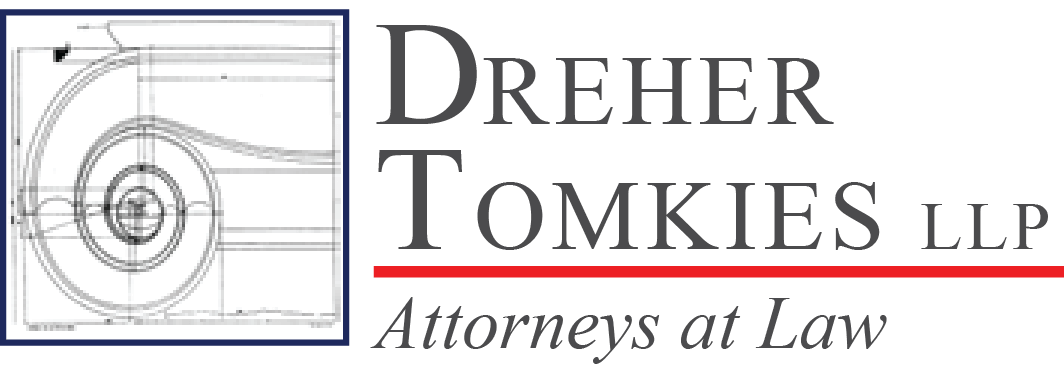On March 28, the Fifth Circuit Court of Appeals ordered a stay of the District Court for the Northern District of Texas, Fort Worth Division’s transfer order in the Chamber of Commerce’s case against the Consumer Financial Protection Bureau (“CFPB”) challenging the CFPB’s late fee rule… Read More
Firm News
CASE CHALLENGING LATE FEE RULE ORDERED TRANSFERRED TO DC
The Chamber of Commerce’s case against the Consumer Financial Protection Bureau challenging the CFPB’s late fee rule is moving to DC. See our ALERTS of Mar. 6 and Mar. 8, 2023. On March 28, after considering briefs by both the Chamber of Commerce and the CFPB Read More
Alert-Court of Appeals Affirms that Trusts are Covered Persons
The Court of Appeals for the Third Circuit held that trusts areb“covered persons” subject to the enforcement authority in the Consumer Financial Protection Act (CFPA). CFPB v. National
Collegiate Master Student Loan Trust, No. 22-1864 (3rd Cir. March19, 2024).
Read More
TRADE GROUPS SUE CFPB TO HALT CREDIT CARD LATE FEE RULE
As expected, the U.S. Chamber of Commerce, the American Bankers Association, the Consumer Bankers Association and three Texas trade groups filed suit against the Consumer Financial Protection Bureau (“CFPB”) on March 7 to halt implementation of the CFPB’s newly finalized rule on credit card late fees.
Read More
CFPB FINALIZES CREDIT CARD LATE FEE RULE, SLASHING LATE FEE SAFE HARBOR
Over a year after the issuance of a notice of proposed rulemaking to amend the Regulation Z safe harbor for credit card late fees, the Consumer Financial Protection Bureau (“CFPB”) announced the final rule to slash the credit card late fee safe harbor from its current rate of $30 for the first violation and $41 thereafter to a flat $8 late fee for card issuers with more than 1 million open accounts.
Read More
CFPB ISSUES GUIDANCE ON COMPARISON-SHOPPING AND LEAD GENERATION
The Consumer Financial Protection Bureau (“CFPB”) has issued guidance on kickbacks and steering in the context of (i) digital comparison-shopping tools, whether on websites, in applications or through chatbots, and (ii) lead generation.
Read More
Assaults on Fintechs and Bank Partnerships Continue
State and federal regulators continue to press on compliance and oversight issues affecting both fintechs and their bank partners. See, e.g., our ALERTS of Sept. 22, Nov. 10 and Dec. 27, 2022, and Apr. 28, June 12 and Aug. 8, 2023.
Read More
Cfpb Orders Supervision Of Nonbank Small-dollar Lender
Pursuant to authority under the Consumer Financial Protection Act (“CFPA”), the Consumer Financial Protection Bureau (“CFPB”) published a supervisory designation order establishing supervisory examination over World Acceptance Corporation (“World Acceptance”), a small dollar installment lender. This order comes in the wake of World Acceptance contesting the CFPB’s Notice of Reasonable Cause to supervise in April 2023 and marks the first time the CFPB has established supervisory authority over a nonbank lender following a determination that the risks surrounding the conduct of the consumer finance company are sufficient to justify CFPB supervision.
The CFPA authorizes the CFPB to supervise “covered persons” whose conduct poses risks to consumers with regard to the offering or provision of consumer financial products or services. The CFPA does not specify the character or magnitude of “risks to consumers” that is required to subject a covered person to supervision. Instead, Congress left such determination to the discretion of the CFPB, with the requirement that the CFPB (i) identify concrete risks to consumers, which it has reasonable cause to determine exist, (ii) notify the entity of those risks and (iii) give the entity a reasonable chance to respond.
Read more
Collection Of Charged-Off Debt Not Subject To Pennsylvania’S Consumer Licensed Lender Statute
The U.S. Court of Appeals for the Third Circuit affirmed the district court holding that the Pennsylvania Consumer Discount Company Act (“CDCA”) was not implicated in the collection of
charged-off debt that related to a loan made by a CDCA licensee.
The debtor alleged violation of the Fair Debt Collection Practices Act (“FDCPA”) after the collector filed a proof of claim in the debtor’s bankruptcy proceeding to collect on the balance of the charged-off loan account. The debtor claimed the filing was unlawful because the debt originated with a CDCA-licensed lender who sold it to an unlicensed third party, allegedly in violation of the CDCA.
Read more
Ftc Obtains $20.3 M Judgement Against Merchant Cash Advance Operator
The United States District Court for the Southern District of New York, in a case brought by the Federal Trade Commission (“FTC”), entered a Final Judgement against Merchant Cash Advance (“MCA”) operator Jonathan Braun for $3,421,067 for monetary relief to address harm caused to small businesses and $16,956,000 as a civil penalty. The Final Judgement followed a three day jury trial in January of 2024. Read More

